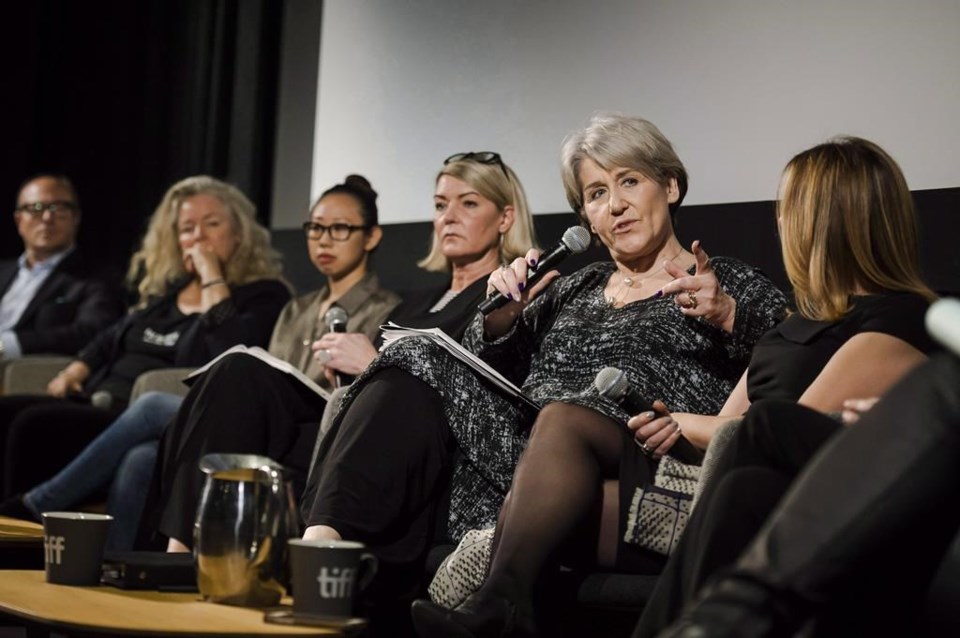TORONTO — The Toronto branch of Canada's performers' union has released a document of best practices for scenes involving nudity, intimacy, simulated sex and sexual violence.
ACTRA Toronto says the document was developed through consultations with its members and industry partners in an effort to combat harassment and drive cultural change in the entertainment world.
It includes advice and checklists for members to consult in situations starting from pre-production through to post-production, including auditions, wardrobe fittings, contracting and closed-set protocols.
The document is for performers, intimacy co-ordinators, agents, casting directors and production companies.
ACTRA Toronto president Theresa Tova says it's a "living document," meaning it can be edited and updated.
She says the document is "not mandatory" for members to adopt and follow but rather a tool to keep performers informed and feeling safe as they work on productions.
She hopes the best practices guideline will foster "important conversations, understanding and action among performers and industry partners alike to ensure all workplace interactions are respectful and consent-based."
Tova says the union will also teach the document in its mandatory Respect on Set training for members.
"This guideline, for me, what sets it apart from other announcements I've heard around the world from other organizations, is the checklist," Tova said Friday in a phone interview.
"So if you don't have an intimacy co-ordinator — if you're way out somewhere on very low-budget set, they don't have enough to bring somebody in to help you through with this stuff — you've got a checklist where you can have a meaningful conversations with your agent, with casting, and go, 'Well how are we going to do this? And 'This is my bottom line.'"
Tova noted that any worker in the province of Ontario has the right to refuse work for health and safety reasons.
The best practices document "doesn't negate any obligations" a production may already have in agreements that the union has negotiated with them, Tova said.
The document is one of several measures ACTRA has taken since the #MeToo movement gained traction in 2017 in the wake of allegations against producer Harvey Weinstein, who was convicted last month on rape and sexual assault charges.
Those efforts include co-launching a helpline and spearheading the Canadian Creative Industries Code of Conduct to Prevent and Respond to Harassment, Discrimination, Bullying and Violence.
It has also worked with its members and Victoria Shen, the ACTRA Toronto special adviser on human rights and sexual harassment, to update policies, procedures, bylaws and training.
Online:
https://www.actratoronto.com/wp-content/uploads/2020/03/Best_Practices_030520.pdf
This report by The Canadian Press was first published March 6, 2020.
Victoria Ahearn, The Canadian Press




